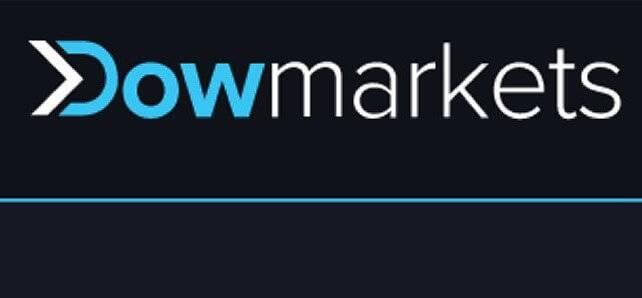CFD Trading: Learn what CFD’s are & why you should trade them

One of the key features of CFDs is that you do not own the stock (or any other underlying asset). When you trade CFDs, this poses a different kind of risk, which you need to understand before you dive deeper into CFDs. You believe the market is about to experience a short dip, and are concerned how this will affect the Cfd stock value of your portfolio. Once your account is set up and you’ve devised a trading plan, it is important to determine how much you are willing to risk to formulate an appropriate CFD risk management strategy. If you are risk-averse, then you will be looking for opportunities with lower risk-to-reward (R-R) ratios.
- Please note that there is always a risk of loss with any trade.
- According to research by Finance Magnates, a downturn in activity in Google searches related to CFDs reflects lower levels of engagement with the trading strategy.
- Therefore, CFD risk management is one of the crucial points to consider and implement in your trading practice.
- That’s because your initial margin would only be 20% of the total $40,000 trade value ($8000).
Here at CAPEX, we offer traders some of the lowest trading spreads, fees and commission rates that are extremely low as well. On top of that, we do not charge a deposit or withdrawal fee, nor do we have a minimum deposit amount. Our aim is to provide the best possible CFD trading experience with the lowest trading fees and costs. CFDs, short for contract for differences, are a famous form of financial derivatives in which two parties agree to trade a contract based on an asset’s future price speculation. A CFD trader doesn’t actually buy and sell an asset like you do while trading stocks; instead, the trader buys a contract from a CFD provider. In addition to spreads, traders can also incur additional charges when they leave trading positions overnight.
We Execute and Provide the Best Liquidity
If we use a large volume, for example 0.1, then the profit will increase 10 times and become $100, and so on. The higher the leverage, the higher the possible profit, but don’t forget about the high risk and the possibility of the margin call. In case of failure, your loss will also be leveraged and can deplete your deposit just as quickly. Leverage on Forex is an interest-free loan provided by a broker, which allows you to make trades with a volume greater than your own capital. There are many trading strategies specifically to practise trading with contracts for difference, but I suggest you consider the most basic and accessible ones. On Classic accounts, the spread is higher than on ECN retail investor accounts as it consists of two components – the exchange spread and the brokerage spread.
Meme stock TOP Financial Group soars more than 890%, spurred on by the Reddit crowd – MarketWatch
Meme stock TOP Financial Group soars more than 890%, spurred on by the Reddit crowd.
Posted: Sat, 29 Apr 2023 07:00:00 GMT [source]
You can find a bunch of articles about trading plans both on the Internet and on this blog. But since I mentioned it, I will draw up a short trading plan for you too. First of all, we need to draw up a so-called trading plan. In addition to quite successful trading journey in the market itself, I found myself in education and financial analysis. Someone will gain invaluable experience and decide to go along the path of creating a brokerage company.
Countries Where You Can Trade CFDs
The investor buys 100 shares of the SPY for $250 per share for a $25,000 position from which only 5% or $1,250 is paid initially to the broker. Part of the reason why CFDs are illegal in the U.S. is that they are an over-the-counter (OTC) product, which means that they don’t pass through regulated exchanges. Using leverage also allows for the possibility of larger losses and is a concern for regulators. Brokers currently offer stock, index, treasury, currency, sector, and commodity CFDs. This enables speculators interested in diverse financial vehicles to trade CFDs as an alternative to exchanges.
This means you can still make a profit when the stocks falls in value – not just when it rises. Derivatives are complex instruments and come with a high risk of losing money rapidly due to leverage. You should consider whether you understand how Derivatives work and whether you can afford to take the high risk of losing your money.
Trading Shares With CFDs
This is to cover the cost of maintaining your position over the longer term – as you’re trading on leverage. Note that these profits and losses exclude costs and charges. These could be overnight funding charges, commission or guaranteed stop fees. We offer a free demo account to all traders looking to practise their trades before opening a live account. We also give you access to IG Academy – our education tool for traders. Leverage in CFD trading enables you to get full market exposure for a small initial deposit, known as margin.
Is it good to invest in CFD?
CFDs are attractive to day traders who can use leverage to trade assets that are more costly to buy and sell. CFDs can be quite risky due to low industry regulation, potential lack of liquidity, and the need to maintain an adequate margin due to leveraged losses.
Shareowners may also get the right to vote during a company’s annual shareholder meeting. Trading CFDs from the stock markets gives you the opportunity to trade price movements of shares from some of the largest and well-known companies in the world. Unlike stock trading, you can go short on stock CFDs and take advantage of falling stock prices, not just rising ones.
Comparison with other financial instruments
Most CFD brokers offer products in all major markets worldwide. Traders have easy access to any market that is open from the broker’s platform. CFD trading is fast-moving and requires close monitoring. As a result, traders should be aware of the significant risks when trading CFDs. Essentially, investors can use CFDs to make bets about whether or not the price of the underlying asset or security will rise or fall. If the trader who has purchased a CFD sees the asset’s price increase, they will offer their holding for sale.
They are often a symbiosis of basic technical analysis strategies and the contract for difference structure. We can close the profitable position on the second account and wait until the price rises and returns to profitability on the main account. Or we can wait until the price returns to the level from where we started. Not everyone will be able to afford it, since one stock costs $1,445, and ten – $14,450. With the help of margin lending, I can buy 100 Google stocks with only about $400 on my CFD traders’ account. This is a very useful exercise for novice and experienced traders, which is great for building self-confidence.
Understanding Contract for Differences
ECN accounts use the so-called “raw” market spread without the broker’s markup, which is much more attractive for CFD traders who work on short time intervals. As you already know, most brokers on the CFD trading market have 2 types of retail investor accounts, Classic and ECN. https://investmentsanalysis.info/ Of course, there are also free demo accounts, where you can practice CFD trading, but that’s a completely different story. In short, the main difference between these retail investor accounts is precisely the types and amounts of fees, such as spreads, swaps, and commissions.

If, however, you go for a CFD trade at a CFD broker, you will not buy the actual stock, instead, you will buy a bet that the share price will go up. Naturally, you can also bet that the price will go down. You can then sit back and keep your fingers crossed that the price will go your way.
Do people make money on CFD?
Yes, CFD trading is potentially profitable, providing that you do your research and make sensible, informed trades. However, there's also a high risk of losing money when you trade CFDs. Upwards of half of all retail investors lose money when trading CFDs.
